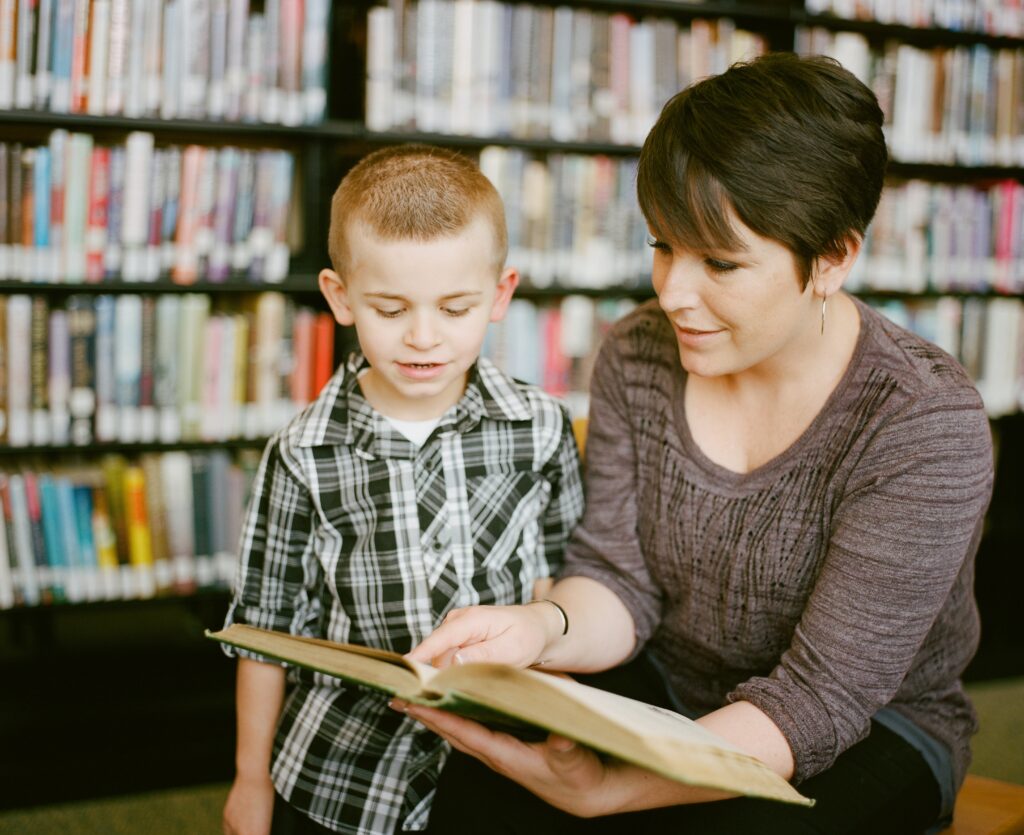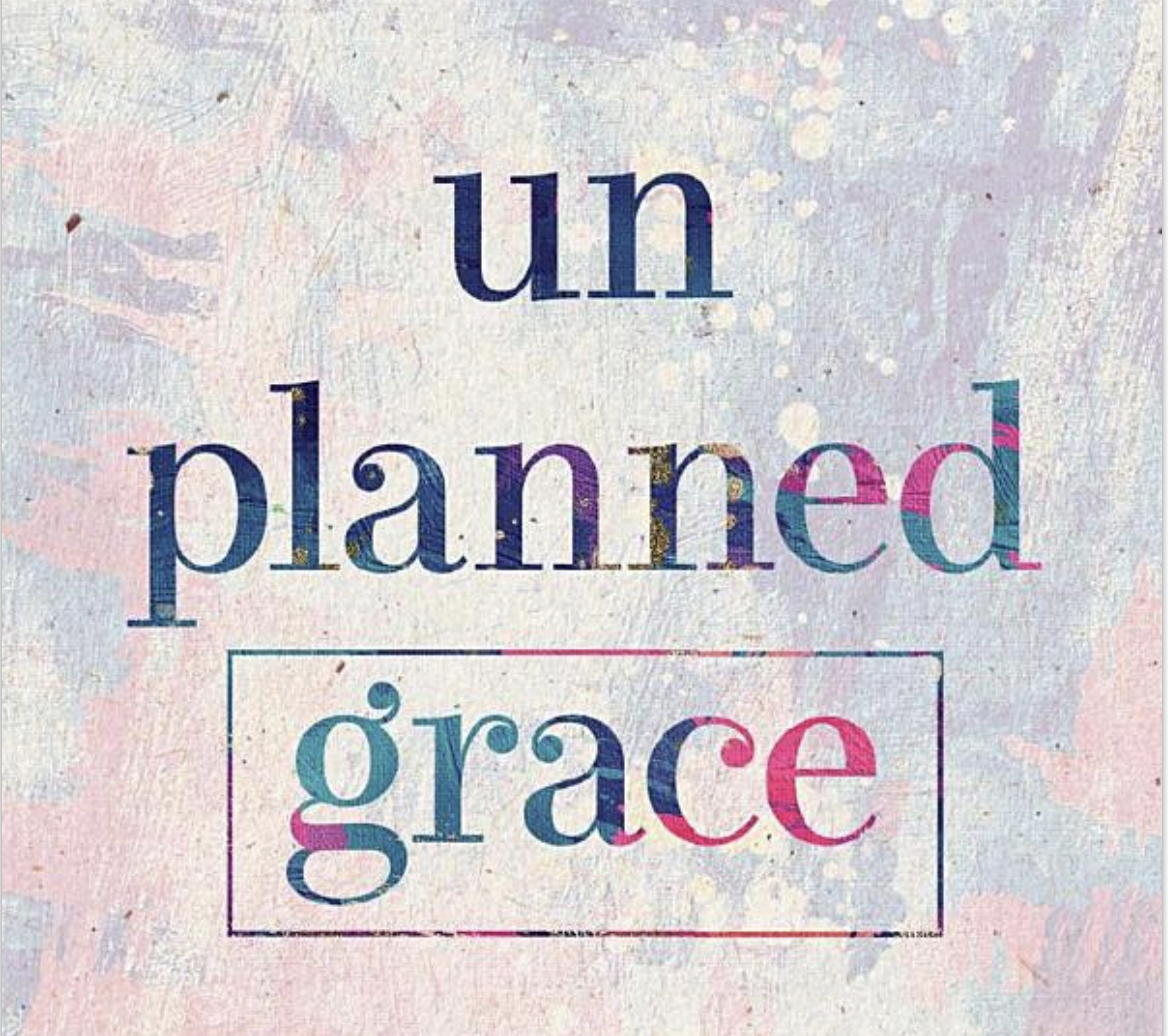Approaching the issue of unplanned pregnancy with love and compassion opens doors and creates conversations in a way that judgment and shame never could. Offering resources, education, and support empowers women and men to make life-affirming decisions for themselves and their children.”
This book, “Unplanned Grace” by Brittany Smith and Natasha Smith, came into my life during the week that the Supreme Court reversed Roe v. Wade. I don’t think it could have come at a more timely moment in history!
The topic of abortion dovetails with sexual education in a way that many of us realize, but may hesitate to share with our children … or perhaps we don’t feel comfortable sharing with our children, especially if that was never modeled for us.
I hesitated to write this blog post because I know how divisive and confrontational the topic of abortion is, even within the church. If the church is struggling with this issue, then how much more does the world outside the church, since they already do not profess to be followers of Christ.
Nevertheless, I believe it is extremely important to have these kinds of discussions and conversations, and especially with those who may not agree with us, in a respectful and God-honoring way.
What better time to talk about this with your children than now!

Abortion and ‘Pro Choice’
Whenever you discuss these kinds of issues with your children, I’ve always believed in letting them know what you believe is true (or what your opinion is) so that they know your bias.
Some parents, I’ve noticed, will say something like, “I don’t tell my child what to believe. I just tell them the facts and let them make up their own mind.”
While this may sound idealistic and – dare I say? – noble, I don’t think it’s exactly true. Let me explain.
For example, we as parents usually tell our children not to cross the road when a car is coming. Why? Because if they do, the car may hit them.
Now at this point, our children probably won’t give us an existential but nevertheless perfectly logical question like, “So what if the car hits me? So what if I die? If I’m a clump of cells that just happened to be born randomly, then I don’t see why you should care so much whether I live or die. In fact, it may be better for you if you don’t keep me alive because I do tend to use up a lot of environmental resources.”
Why not? Because deep down, whether we like to admit it or not, we can all agree on the “fact” that human life is valuable. We value human life. A car hitting a child is a terrible tragedy at any time, in any place.
So in other words, even if we try to take all “values” or “beliefs” out of our children’s education, it’s not possible. Even the way that we approach telling the “facts” to our children will reveal our intrinsic biases and assumptions. It’s just human nature.
So back to abortion and pro choice …
I want to try to understand, and enunciate, the opposing viewpoint to mine in as honest and accurate a way as I would want them to enunciate my own viewpoint, no matter how repugnant or terrible it may seem to me. This is a valuable skill that I tried to develop during my high school years through debate. It will also help you when communicating difficult subjects to your children.
So, we’re going to talk about this if we were looking at abortion purely from a pro-choice viewpoint. Here’s what I imagine I would describe it if I had this view and wanted others to understand me:
Because of the unique nature that only women give birth and get pregnant, this biological fact has been used to oppress women throughout history. Therefore, I see abortion as a valuable tool, made safer and simpler through modern technology, that helps empower women to avoid carrying unwanted pregnancies to term.
Therefore, any attempt to restrict access to abortion is – by definition – an attack on women’s reproductive rights. And because I don’t believe a preborn baby is a human being yet, I don’t agree with pro-lifers that abortion is morally equivalent to murder.
Instead of attacking people who have different viewpoints from ours, we need to remember that our true battleground is spiritual: “For our struggle is not against flesh and blood, but against the rulers, against the authorities, against the powers of this dark world and against the spiritual forces of evil in the heavenly realms.” (Ephesians 6:12)
A better strategy is usually to find points of agreement, or statements upon which we can all agree – a common ground, if you will.
This book, while unabashedly pro-life, tackles many of these hard questions such as “What happens when the pregnancy is conceived through sexual violence like rape?” or “What if the woman is a victim of domestic violence and the pregnancy could put her in further danger?” or “What if the woman is living in poverty and can’t afford to support another person?”

In all of these situations, pregnancy resource centers and churches are stepping up to help the helpless – both the woman and her unborn child. The book quotes many Scripture passages to emphasize this point:
Speak up for those who cannot speak for themselves, for the rights of all who are destitute. Speak up and judge fairly; defend the rights of the poor and needy.” (Proverbs 31:8-9)
The righteous will answer him, ‘Lord, when did we see you hungry and feed you, or thirsty and give you something to drink? When did we see you a stranger and invite you in, or needing clothes and clothe you? When did we see you sick or in prison and go to visit you?’ The King will reply, ‘Truly I tell you, whatever you did for one of the least of these brothers and sisters of mine, you did for me.’ (Matthew 25:37-40)
Is not this the kind of fasting I have chosen: to loose the chains of injustice and untie the cords of the yoke, to set the oppressed free and break every yoke? Is it not to share your food with the hungry and to provide the poor wanderer with shelter – when you see the naked, to clothe them, and not to turn away from your own flesh and blood? (Isaiah 58:6-7)
In all these areas, God never calls us to avoid messy and often tragic situations, but to bring His unconditional grace into these situations to redeem them.
Abortion and ‘Pro Life’
Contrary to cultural assumptions, the pro-life view actually agrees with the pro-choice side in the belief that women’s lives are valuable and worth supporting. We disagree, however, that a woman and the unplanned unborn cannot thrive simultaneously.”
As Christians, Jesus admonishes us to be as shrewd as snakes, yet as harmless and innocent as doves (Matthew 10:16). We need to be aware of other people’s perspectives and how they view us. Additionally, our lives and actions should be a living testimony of God’s hope and calling within us.
While I tried to enunciate the pro-choice viewpoint above as sincerely and accurately as I could, the truth is that I am not pro-choice. I do see abortion as morally equivalent to murder.
In the very rare cases where a mother’s life is physically threatened by a pregnancy, then I see those cases as morally equivalent to trying to save two lives but knowing that we may (realistically) save only one life. Just like doctors on a battleground try to save as many wounded soldiers as they can, knowing that they may (realistically) save only some and not all.
This book goes into many stereotypes about the pro-life movement and helps dismantle them one by one – for example, that pro-lifers tend to be “pro-birth” only and don’t care for children after they’re born. Not so! Pregnancy resource centers include the following resources:
- Parenting programs
- Sexual risk avoidance education
- Referrals to welfare programs for assistance
- Baby supplies
- Counseling
- Sexually transmitted infection (STI) testing and sometimes treatment
- Programs such as BrightCourse that can include information on pregnancy, infancy, toddlers, life skills, and more
Additionally, a network of organizations, churches, individuals, and government programs are working to address the important need of housing for these women, especially those fleeing an abusive relationship or who are victims of domestic violence.
When you help women realize they are not alone and show them that the community has resources to help them, suddenly the reasons for an abortion don’t seem like such a big hurdle.”
Importantly, this book also exposes the fallacy of thinking that abortion is actually an “empowering” decision for a woman to make:
A study from the Journal of American Physicians and Surgeons found that almost three-quarters (73.8 percent) of women who had an abortion admitted feeling pressured to end their pregnancy. Of the 987 women who participated in the study, more than half said they chose abortion to make others happy, and 28.4 percent of respondents said they were afraid they would lose their partner if they didn’t have an abortion.”
If abortion is so appealing to women as a “right,” then why do so many women feel pressured into it?
The problem is that we’re not on a level playing field, where women feel as free to continue the pregnancy to term as they are feeling pressured to abort or kill a child.
For the question remains, do women want abortion? Not like she wants a Porsche or an ice cream cone. Like an animal caught in a trap, trying to gnaw off its own leg, a woman who seeks an abortion is trying to escape a desperate situation by an act of violence and self-loss. Abortion is not a sign that women are free, but a sign that they are desperate.”
(You can read more in this excellent article from Feminists for Life.)
The book also includes a great chapter called “Healthy Sexuality” and setting relational boundaries that further empower women to let them know their intrinsic value and worth. I highly recommend spending some time in this chapter with your older children and seeing what kind of conversations it can generate.
I hope this review gives you some fresh insights and inspiration in how to incorporate sex education with your children in a holistic, literature-focused approach. Let me know if there’s a specific resource you’d like me to review next!

1 comment